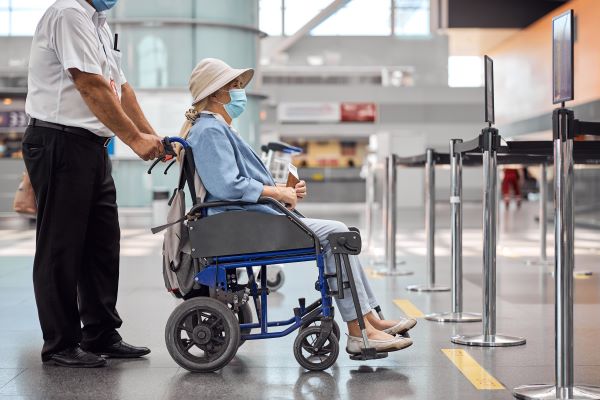The terms “disabled travel” and “accessible travel” refer to travel by individuals with disabilities. Although traveling with a disability can present challenges, it is now more possible than ever with proper planning, accommodations, and legal protections. With accessible travel services and a growing movement for inclusivity, exploring the world has never been more achievable for everyone.
1. Consult With Your Physician
Before making travel plans, speak with your doctor. Provide details about your destination, transportation, climate, and planned activities. Certain factors—like high altitudes—can pose hidden health risks, especially for those with lung or heart conditions.
Your doctor can help ensure your safety during the trip. They may offer advice, adjust your medications, or issue a medical statement for emergencies. This is a vital first step toward safe and confident travel.
2. Know Your Rights
Understanding your rights is crucial for accessible travel. The Transportation Security Administration (TSA) offers special procedures for travelers with medical conditions.
Need assistance at the airport? Call the TSA Cares Helpline at 855-787-2227. They can guide you through screening processes and airport protocols.
If you’re traveling internationally, laws may differ. Speak with an accessible travel specialist to ensure compliance in your destination country. You can also consult the Americans with Disabilities Act (ADA) for U.S.-based legal protections.
3. Plan Ahead and Book Early
Planning is key. Hiring a travel agency that specializes in accessible travel can simplify your journey. These agencies handle accommodations, accessible transportation, and activity scheduling.
If booking independently, research each part of your itinerary. Call ahead to confirm that hotels, transportation services, attractions, and excursions meet your needs. Be clear and specific when describing your disability and required accommodations.
4. Stick to Your Routine
While travel encourages spontaneity, don’t neglect your normal health routine. If you usually rest after lunch or take regular medications, maintain that schedule while away.
Adjusting your plans to fit your usual habits reduces stress and prevents medical flare-ups. Listen to your body—rest when needed, hydrate often, and don’t overdo it.
5. Prepare for the Unexpected
Even the best plans can go off track. Flights may be canceled, luggage might get lost, or you could get delayed. Always pack extra medications, mobility aids, and medical supplies in your carry-on bag.
Research nearby medical facilities before your trip. Websites like International SOS or Cigna Healthcare Abroad can help. Keep your medical ID, emergency contacts, and physician’s information with you at all times.
6. Safe and Inclusive Travel Is Possible
We are fortunate to live in a time when accessible travel is improving every day. With proper preparation and support, people with disabilities can safely enjoy travel experiences around the world.
If you encounter any properties or services that do not comply with accessibility requirements, consult a special needs or elder law attorney to discuss your rights and legal options.
Need help planning legally for travel with a disability? Contact our Sherwood or Searcy office at 501-834-2070 to schedule a consultation. We’re here to support your travel, safety, and peace of mind.
This article is intended for informational purposes only and does not constitute legal advice or establish an attorney-client relationship. For legal guidance, please consult an attorney.

